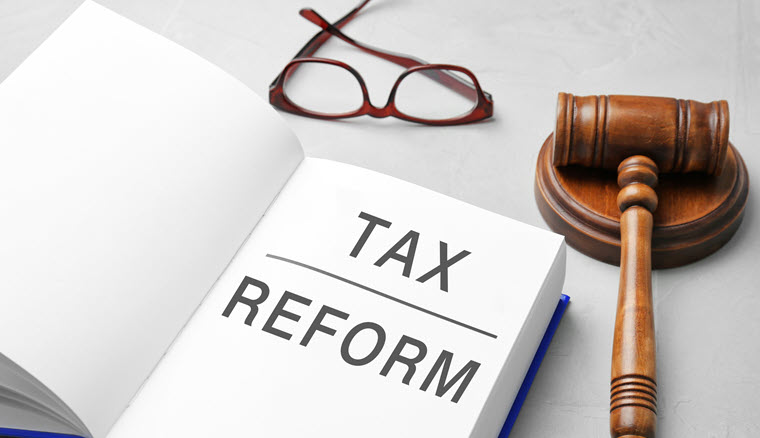This article is being reprinted with permission from NAELA. It was originally published in NAELA NEWS, Volume 36, Issue 1, Jan/Feb/Mar 2024, pages 6-9.
I am not an expert on AI. Let me be upfront about that. I work for a legal technology company, so of course, it’s a topic of great interest to me. I would even venture to say that I know more about AI than the average estate planning attorney, but “I am not an AI expert.” It is a line I’ve repeated over the last several months, following a blog post I wrote for our company website on AI and the legal profession.1 I have written blog posts and co-authored articles on important and timely topics ranging from SECURE to the estate tax marital deduction, but none have received as much attention as the blog post on AI.
I mention this at the outset for two reasons. The first is to set expectations. I am writing to share my ideas and recommendations based on my experience. Still, I would not want anyone reading this article to operate under the misconception that I have in-depth technical knowledge of the generative AI systems, such as ChatGPT, currently taking the world by storm. The second is to emphasize the importance of this topic within the estate planning and elder law community today. The interest that my short blog post garnered shows me that all of us in this space are interested in AI, concerned about what it means for us and the future of our practice, and hungry to learn more about it.
I am fortunate to be in a position that affords me access to other attorneys grappling with this subject and people with technical backgrounds who have a good understanding of current and developing AI technology. Although I am not an expert, I have experience in the area that other estate planning and elder law attorneys may not. Based on that experience, I offer my thoughts on the subject, hoping they will help others in the estate planning and elder law community. As attorneys, we do not need to become AI experts, but we do need to deal with the effects of AI on our profession. Here are some steps we can take to do that.
1. Don’t Fear AI, Embrace It
The legal profession has a lot of well-founded fears around AI. We fear for our livelihood. We fear for the integrity of our profession. We fear society will suffer due to AI-driven do-it-yourself legal solutions that produce less than adequate results. The best way to deal with these fears is to engage with AI so that we understand its potential and can harness that potential where feasible. It makes us consumers of AI solutions, giving us the market power to demand solutions that will enhance estate planning and elder law practice rather than working against it. It also lets us meet the demands of clients as they become increasingly used to AI-driven services. Whether using an AI-driven chat service to direct clients to resources on your website, an AI-based scheduling assistant, or an AI research tool, embracing AI tools can enable attorneys to operate more efficiently and provide a better client experience. Moreover, attorneys have an ethical duty to stay abreast of technological developments and to evaluate their relative risks and benefits. Investigating AI resources to use in law practice is not only a good idea; it is a requirement.2
2. Investigate Security and Privacy Issues
As mentioned above, attorneys have an ethical duty to stay current on technological developments that can benefit clients. Of course, the corollary to that duty is to evaluate the risks associated with that technology. Generative AI platforms are generally available to the public to use data entered into the platform to train the AI system further.3 Accordingly, such publicly available platforms collect and retain data in a way that likely will be unacceptable to most attorneys when considering their obligations to maintain client confidentiality and comply with state privacy laws. When evaluating AI-based technology, attorneys should look to platforms designed for businesses that segregate customer data and provide more privacy measures.4 Firms can develop proprietary solutions that limit access to and storage of firm data in ways that let the firm address these security and privacy concerns. This proprietary solution may be a good fit for larger firms with the budget to develop and maintain it, but it likely will not be a viable option for smaller firms. Solo practitioners and lawyers in smaller firms should stay attuned as commercial technology platforms continue incorporating AI technology into their products. Reputable legal software vendors take the necessary precautions to secure and segregate client data to the extent possible. They will, by necessity, address these concerns when developing AI components as part of their software. By staying current on commercial AI solutions as they grow, lawyers can fulfill their ethical obligation to find beneficial solutions and reduce risk.
3. Think of AI as a Tool
To preserve our profession’s integrity and ensure clients receive high-quality legal services, attorneys must think of AI as a tool to make legal work better and more efficient. In this way, AI is like any number of tools already used by attorneys, including research tools, practice management systems, word processors, and email. These tools let attorneys do their jobs more effectively but do not aim to usurp the attorney’s role. As a profession, we should be wary of any AI product that purports to accomplish tasks requiring the skill of an attorney, such as verifying or analyzing case law, performing legal analysis on a set of facts, or creating advice for a client. Not only are such solutions a threat to our livelihood, they are unlikely to perform as they claim.
4. Adopt AI Usage Policies
Firms should adopt AI usage policies as soon as possible and update them regularly. Policies should address whether and the extent to which attorneys and staff within the firm are allowed to use AI in performing their work and on firm-owned devices. If AI is permitted, the policy should address the entry of types of information into an AI-based platform and outline the process for approving particular AI platforms for use (e.g., by submitting requests to the IT department or firm technology committee). A list of approved AI platforms should be maintained and distributed to staff.
5. Advocate for Guidance and Restrictions
Whether we like it or not, those of us in professional service fields are on the front lines of the battle to harness the power of AI without sacrificing the human qualities, such as complex thought and compassion, that are essential to the services we provide. The federal government and our professional organizations are already engaged in evaluating the AI landscape and working to put guardrails in place regarding the use of AI.5 We should encourage these endeavors by participating in committees, submitting public comments where possible, advocating for other professional organizations to form AI committees, and adopting guidance where possible. As alluded to at the beginning, this article was not about how I became an AI expert, because I am not one. Instead, it offers suggestions from someone who hit a nerve by writing a short piece on AI that interested many attorneys who read it. Although most of us will never be AI experts, we can become experts at navigating AI and its use in the legal profession.
1 Why I Do Not Fear AI, available at https://interactivelegal.com/2023/06/16/why-i-do-not-fear-ai/.
2 See Model Rules of Pro. Conduct, 1.1, Comment [8] (Am. Bar Ass’n 2023), requiring attorneys to “keep abreast of changes in the law and its practice, including the benefits and risks associated with relevant technology.” Many states have adopted similar requirements in their rules governing legal ethics.
3 See Tatum Hunter, Why You Shouldn’t Tell ChatGPT Your Secrets, The Washington Post, April 27, 2023.
4 ChatGPT, for example, offers an enterprise solution and a “team” solution for smaller businesses, each with additional privacy protections. An overview of these solutions is available at https://openai.com/.
5 On October 30, 2023, President Biden signed an Executive Order on the Safe, Secure, and Trustworthy Development and Use of Artificial Intelligence. Exec. Order 14110, 89 Fed. Reg. 75191 (Oct. 30, 2023). In February 2023, the American Bar Association adopted Resolution 604, urging developers and others deploying AI solutions to follow stated guidelines. See ABA House of Delegates, Res. 604 (2023).
Meet the Author

Vanessa Kanaga currently serves as InterActive Legal’s Special Advisor on Estate Planning and Legal Strategy. She is the former CEO of InterActive Legal. Vanessa received her J.D. from Cornell Law School and holds a B.A. in Philosophy from Wichita State University, as well as an Advanced Professional Certificate from New York University School of Law. She is licensed in New York, Kansas, and Arizona, and currently lives in Arizona.
Prior to joining InterActive Legal in 2013, Vanessa practiced in New York, at Milbank LLP and Moses & Singer LLP, and in Kansas, at Hinkle Law Firm, LLC. She has experience in a range of estate planning matters, including high net worth tax planning and asset protection planning.
In 2024, Vanessa returned to the practice of law. She is Of Counsel at Becker and House, PLLC in Scottsdale, Arizona.




















































































